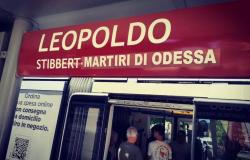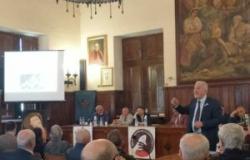
It’s eight in the evening and in front of the municipal theater of Salerno (which will be called Verdi theatre only five years later in homage to the composer who had just passed away) there is excitement: a continuous coming and going of carriages with elegant ladies and well-groomed gentlemen. There is anticipation for the premiere The Gioconda by Amilcare Ponchielli which marks the return on stage, in the Campania capital, of the young but already appreciated Neapolitan tenor Enrico Caruso. It was in Naples where he started performing that Caruso met Vincenzo Lombardi, and Ferdinando De Luciarespectively orchestra director, who was generous with advice, and director of the municipal theatre, who made his debut at the Massimo Salerno on 6 and 7 June 1896 in Rigolettothe Verdi melodrama with which, by pure coincidence, the municipal theater had been inaugurated twenty-four years earlier.
The singer, who plays the role of the Duke of Mantua, has only 23 years. On this occasion one of his first admirers, Enrico Lorello (who later became his first Italian secretary), prophesied: «One day you will be the greatest of the great». Immediately appreciated by the people of Salerno for his singing skills, the young Enrico was hired, again at the municipal theater of Salerno, by the company Visciani to play the role of Arturo The Puritans by Vincenzo Bellini, on 8 September 1896, and for Cavalleria Rusticana by Pietro Mascagni. Between September and November he moves on to the business of Giuseppe Grassi (also director of the magazine The whip) For The Traviata by Giuseppe Verdi, Carmen by George Bizet, The Favourite by Gaetano Donizetti, clowns by Ruggero Leoncavallo and finally, for Don Giovanni Arcietto, protagonist of the dialect poem by Salvatore Di Giacomo, recently published (1895-96) set to music by Carlo Sebastiano, In San Francisco (28 November 1896).
But it is precisely with La Gioconda that the extraordinary opera singer consecrated to history is consecrated: reconfirmed by Grassi’s feat, he is also the protagonist of Manon Lescaut by Giacomo Puccini, La Traviata and the Veiled prophet, a drama based on the homonymous poem by Thomas Moore by Italo Robin and Luigi Conforti, set to music by Daniele Napoletano which, after the premiere at the San Carlo in Naples in 1892, also arrives in Salerno for the first time. Fifty performances in all, for one total fee of 100 lire, in a crescendo of applause and notoriety. In Salerno Caruso is very close to getting married Josephine, daughter of the impresario Grassi, the marriage was scheduled for the carnival period of 1897 but it fell through at the last moment. The cause was probably Caruso’s crush on one of the Mona Lisa’s dancers. As evidence of the tenor’s strong bond with the Salerno public, which continued to applaud him until 1901 when he was hired by the San Carlo of Naples, remains the door of a dressing room (now exhibited at the box office) by him autographed after his success.





